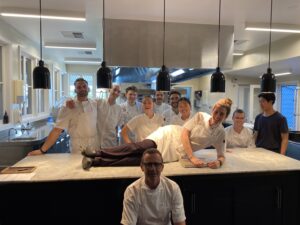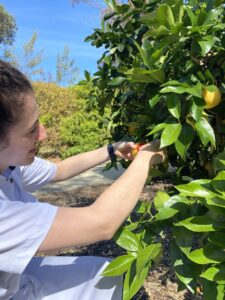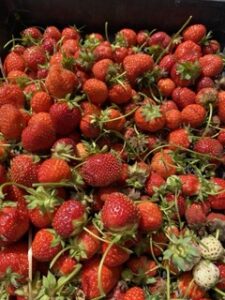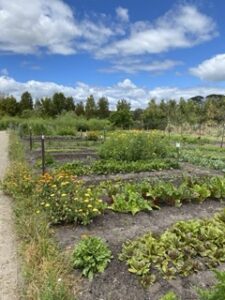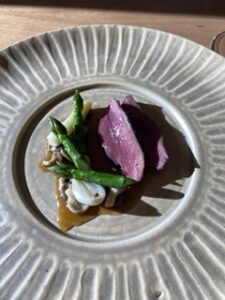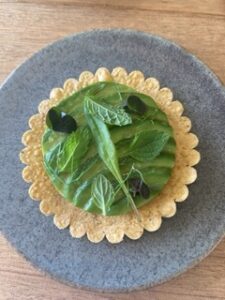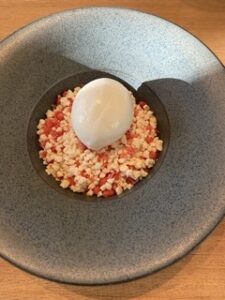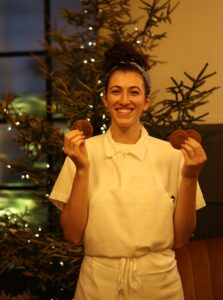
For my Ment’or stage, I wanted to experience a kitchen and style of cooking different from the familiar, and push myself outside of my comfort zone. Most importantly, I wanted to observe how cooking can be representative of its geographical location and local community, which made Brae in regional Australia a fitting choice. Set in the Victorian countryside 2 hours outside Melbourne, with its own 20 acre organic garden, Brae is completely different from any restaurant I have ever worked or dined at. Brae was my first experience with a set menu versus à la carte, which provided a whole new set of challenges – from understanding the rhythm and flow of service to studying the cover counts and menus for each service before portioning ingredients for dishes.
My first few weeks were spent primarily on group jobs and larder (cold station). Group jobs are listed everyday with exact times written next to them so that the team knows how much time they should spend on each task in order to proceed through the day’s list as efficiently as possible. This level of precision and organization is unlike anything I have ever experienced in a kitchen. Group jobs varied from shelling broad beans, to cleaning asparagus, to carefully and painstakingly peeling parsnip skins for their classic apple and parsnip “cannoli.” Completing tasks together each day enabled us to work effectively as a team, employing constant communication to prepare for the next task ahead. Portioning ingredients prior to service made all the difference. Brae’s iconic garden salad (composed of over 50 ingredients) was one of the most time consuming dishes to plate. Each garden salad represents the best of Brae’s garden from that week, meaning the ingredients rotate frequently and each plate consists of over 50 herbs, flowers, and vegetables all grown in the garden. From preparing the vegetables to get blanched or roasted, to portioning out the greens and flowers, to plating each salad, I was able to see how much effort a seemingly simple dish took. That was the magic at Brae. While dishes appeared simple or straightforward, it took an enormous amount of effort to bring their ingredients from the garden to the plate.
For the first time in my career I had the opportunity to work with ingredients harvested from the same land I was working on. It was also the first time I had harvested anything myself. My time in the garden helped me understand how certain farming practices produce high quality and sustainable ingredients. For example, herbs and flowers are picked early in the morning before being exposed to too much sunlight, helping to preserve their freshness for longer. While harvesting, I was encouraged to taste as I went (just as one would in the kitchen). Brae’s use of its garden illuminated how I may want to select, source and use ingredients in the future. I was taught to treat and process ingredients for dishes with great precision and care which also drove home the importance of sustainability and not taking for granted our ingredients or the environments in which they are grown.
Precision and thoughtfulness was expressed through every kitchen task at Brae, ensuring that everything was done with care and respect. I will carry this ethos with me throughout my career. It became evident through my experience with the group jobs at Brae that this ethos can only be taught by example. I also learned different techniques and uses for ingredients that I would not have thought of prior to staging at Brae, such as frying parsnip skin to use as a tuille for dessert or utilizing leftover scraps of bread to make the base for a sourdough cracker. Ultimately, my time at Brae exposed me to ingredients and ways of using them I have not seen anywhere else, and I am eager to apply this experience to developing my own recipes in the future.
